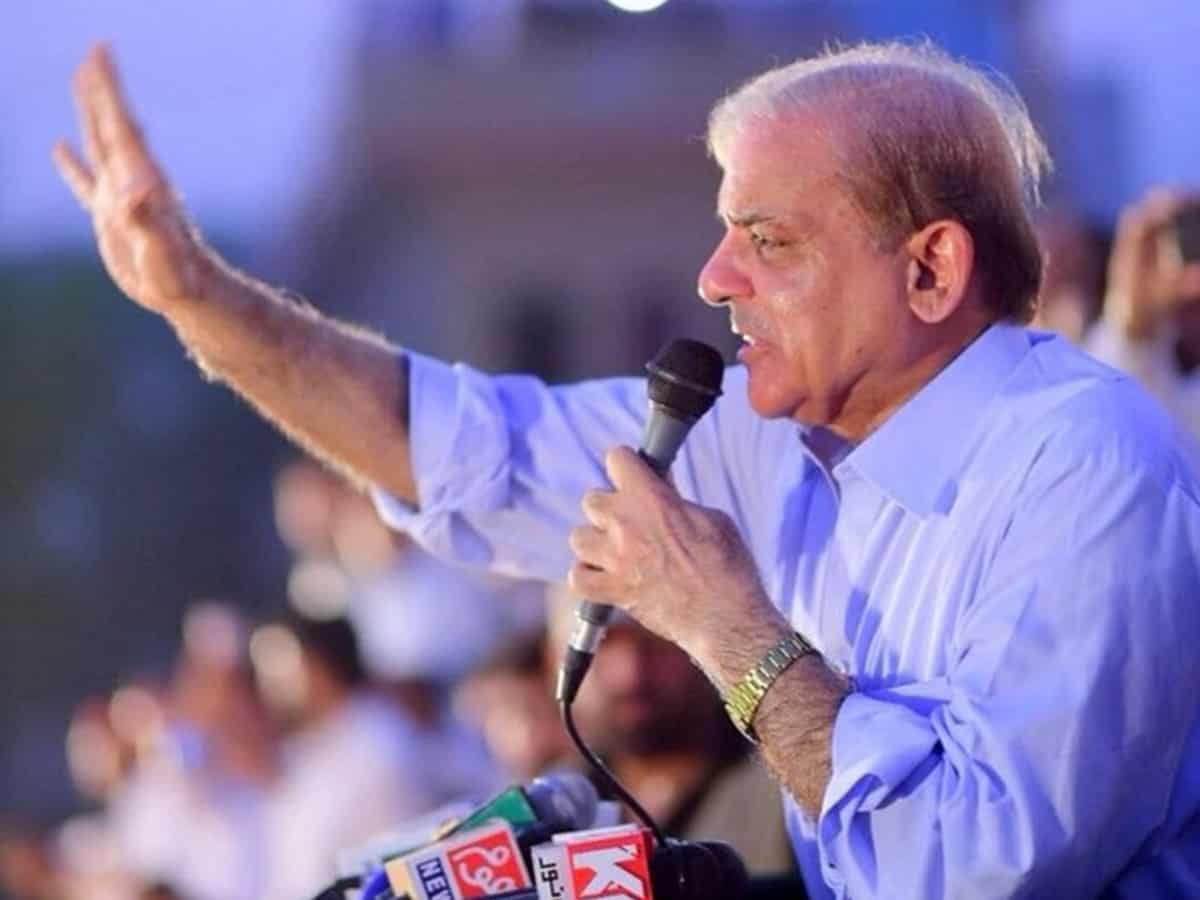
Islamabad: Pakistan’s Parliament met on Sunday to elect a new Prime Minister, a contest in which senior Pakistan Muslims League-Nawaz leader Shehbaz Sharif is poised to win easily.
Shehbaz, 72, is locked in a one-on-one competition with Omar Ayub Khan of jailed former prime minister Imran Khan’s Pakistan Tehreek-e-Insaf (PTI) who has been contesting from the platform of the Sunni Ittehad Council (SIC).
The session, chaired by National Assembly Speaker Sardar Ayaz Sadiq, began after over an hour delay amid slogan shouting.
To become the leader of the house, Shehbaz requires 169 votes in the 336-member National Assembly.
The PTI-backed candidates, who contested as independents after the party lost its election symbol – the cricket bat- just before the February 8 polls, joined the SIC.
The nomination papers of the two candidates have been accepted by the election authorities. The PTI had raised objections against Shehbaz’s nomination but those were overruled and he was allowed to contest.
Later in a statement shared on social media, Omar claimed that Sharif had won the election from his constituency through manipulation of election results.
In the February 8 polls, the Sharifs-led party failed to garner a clear majority, albeit technically, it is the largest party with 75 out of 265 seats.
Besides the PPP, Shehbaz has the backing of the Muttahida Qaumi Movement (MQM-P), Pakistan Muslim League (Q), Balochistan Awami Party, Pakistan Muslim League (Z), Istehkam-e-Pakistan Party and the National Party. He is expected to get around 200 votes.
Shehbaz served as prime minister of a coalition government from April 2022 to August 2023 before Parliament was dissolved to hold general elections.
Omar has the support of 92 SIC lawmakers and he may also get the support of some smaller parties.
His chances of winning a majority are slim as the party has already lost the Speaker and Deputy Speaker’s post
The PML-N president Shehbaz is the younger brother of former three-time prime minister Nawaz Sharif, 74, who sprang a surprise last month after being projected as the party’s prime ministerial candidate ahead of the February 8 elections, marred by alleged vote rigging.
Nawaz Sharif, who returned to Pakistan from London in October last year to become Pakistan’s prime minister for a record fourth time, decided against contesting as his PML-N party failed to garner enough seats in the February 8 elections to form a government on its own.
The elections saw more than 90 independent candidates backed by jailed former prime minister Imran Khan’s PTI winning the maximum number of seats in the National Assembly.
However, in a post-poll alliance, the Mutahhida Qaumi Movement-Pakistan (MQM-P), Istehkam-e-Pakistan Party, and the Pakistan Peoples Party (PPP) have all backed the PML-N’s candidate, ensuring that Shehbaz Sharif will be smoothly elected as the 33rd prime minister. Ayub, on the other hand, does not have the numbers.
As per the rules, at the start of the session, the Speaker shall read out the names of the validly nominated candidates who have not withdrawn from the contest.
Before voting commences, the Speaker shall direct that the bells be rung for five minutes to enable members not present in the Chamber to join.
Immediately after the bells stop ringing, all the entrances to the hall shall be locked and the Assembly staff posted at each entrance shall not allow any entry or exit until the voting has concluded.
Then the Speaker will ask the members who wish to vote in favour of the candidate to pass in a single file through the entrance where tellers shall be posted to record the votes.
On reaching the desk of the tellers, each member shall in turn call out the division number allotted to him under the rules.
The tellers shall then mark off his number on the division list simultaneously calling out the name of the member.
To ensure that his vote has been properly recorded, the member shall not move off until he has clearly heard the teller call out his name.
After a member has recorded his vote, he shall not return to the Chamber until bells are rung again.
When the Speaker finds that all the members who wished to vote have recorded their votes, he shall announce that the voting has concluded.
Thereupon, the Secretary will count the recorded votes and present the result of the count to the Speaker, who shall then direct that the bells be rung for two minutes to enable the members to return to the Chamber.
After the bells stop ringing’ the Speaker shall announce the result.
Both the winning and losing candidates would make speeches after the result. The successful candidate will be given an oath on Monday.



